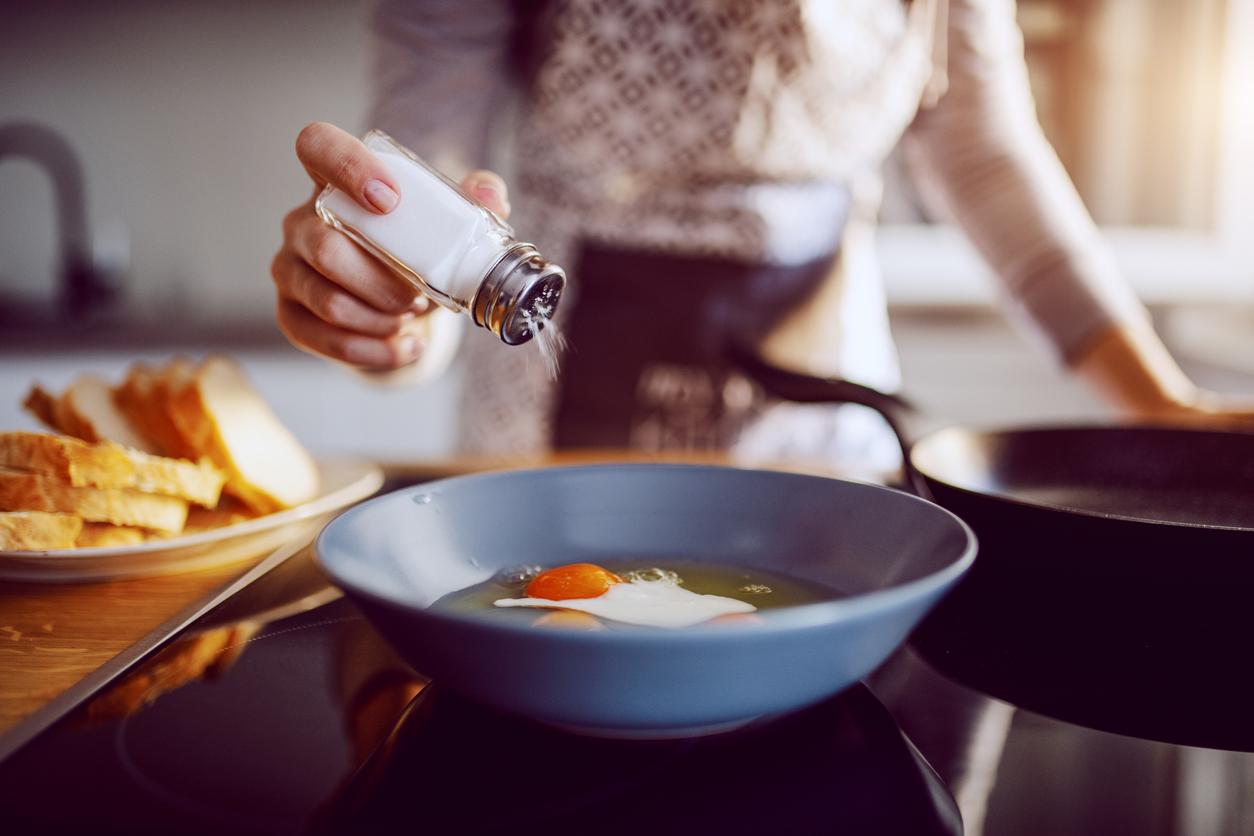Routinely adding salt to food is associated with a more than 40% increase in the risk of stomach cancer.

- Salt consumption is well above the recommendations of the World Health Organization.
- However, a new study shows that systematically adding salt to your dishes increases the risk of stomach cancer by 41%.
- This could be related to the effects of salt on the gastric mucosa or epithelium.
“Put the salt shaker away!”ordered the World Health Organization, in a communicated published in March 2022. It recommends not exceeding 5 grams of salt per day for an adult. However, in European countries, the average daily consumption is 8 to 19 grams. This contributes to an increased risk of heart disease or cardiovascular problems. According to a new study, published in the specialized journal Gastric Cancertoo much salt consumption is also associated with an increased risk of stomach cancer.
Understanding the links between salt and cancer in the UK
The authors, researchers from the universities of Vienna, Austria, and Belfast, Wales, specify that previous research has already demonstrated a link between salt consumption and gastric cancer but only in samples of the Asian population. “Our aim was to assess the frequency of adding salt to food at the table in relation to the risk of gastric cancer in UK adults.”they announce in the preamble.
To do this, they used the British database, called UK BioBank: in total, they included 451,757 participants in their work. Urine analyzes were carried out to observe the sodium levels present in the urine. At the same time, participants answered questions about their salt consumption: “Do you add salt to your food? (Do not include salt used in cooking)” And “how often ?”. They could answer “Never”“rarely”“Sometimes”“generally”“always” And “I prefer not to answer”.
Systematically adding salt to your dishes increases the risk of stomach cancer
The participants were followed for around ten years and 640 cases of gastric cancer were recorded. Those who said add “always” salt to their meals at the table had a 41% higher risk of stomach cancer, compared to those who never or rarely added it. In the introduction to their study, the scientists raise two hypotheses, explaining the link between salt consumption and stomach cancer: the disruption of the gastric mucosa, becoming more sensitive to certain bacteria, or the degradation of the gastric epithelium. , the layer of cells that covers the stomach.
Risk of cancer: how to reduce your salt intake?
“Always adding salt to food at the table was associated with a higher risk of gastric cancer in a large sample of British adults, comment the authors. The high frequency of adding salt to food at the table can potentially serve as a useful indicator of salt intake for monitoring purposes and a basis for designing easy-to-understand public health messages.” Internationally, the World Health Organization regularly communicates on the health dangers of salt. In her March 2022 press release, she gives several tips for easily reducing intake: for individuals, it is important to check food labels to choose the least salty ones. “In some countries, up to 75-80% of the salt consumed daily comes from processed foods.”, she warns. Industrial companies are being asked to reformulate certain products to reduce salt levels. “High salt consumption is a leading cause of death in the WHO European Region.she warns.
















